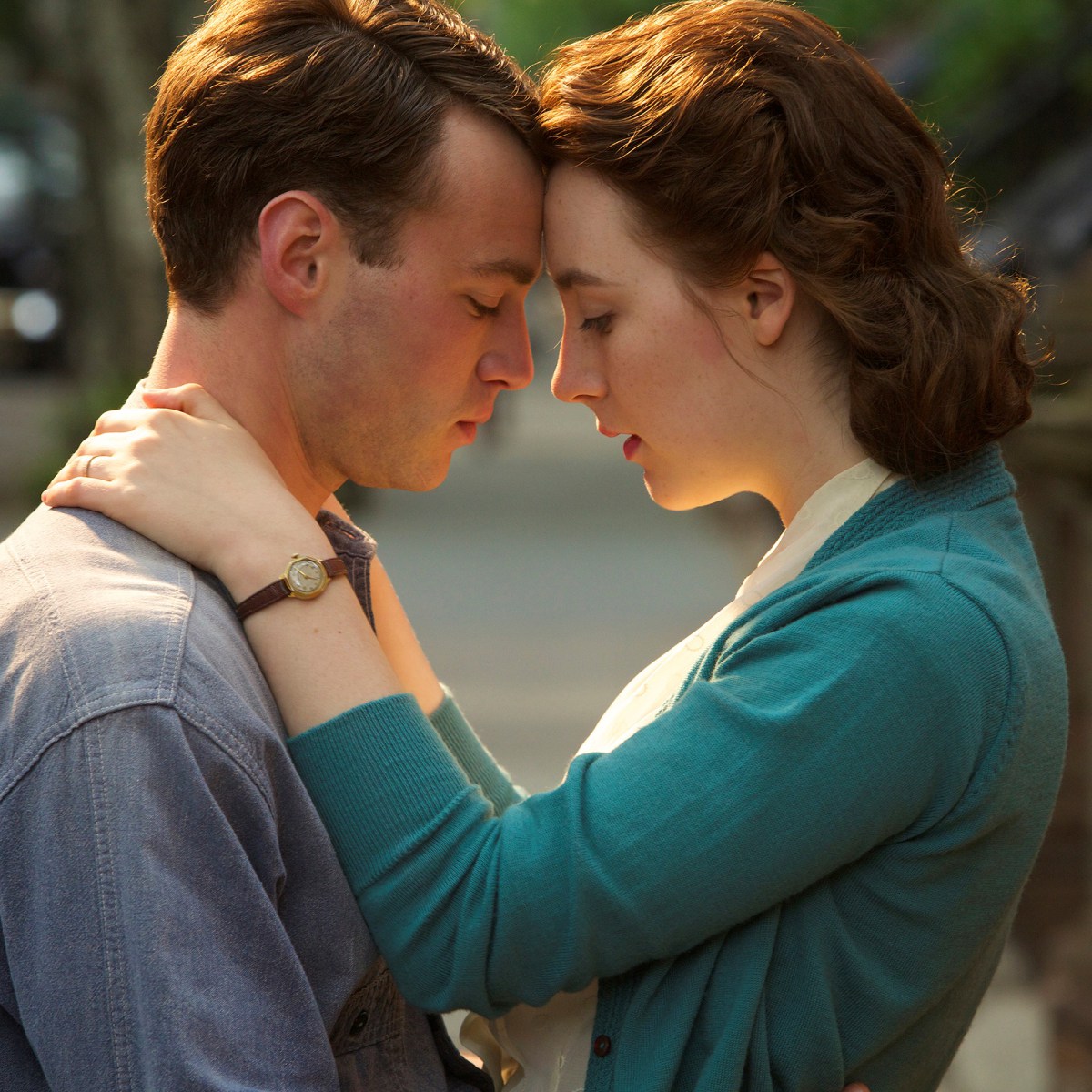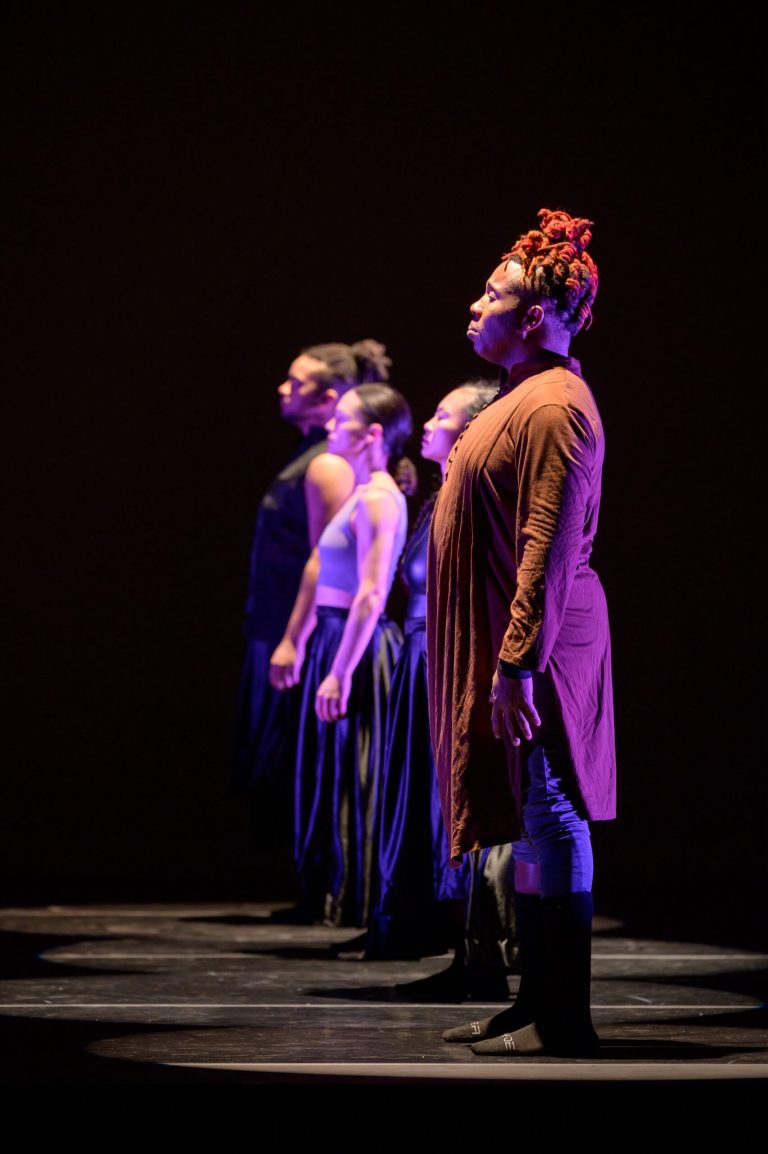TRIP SLAYMAKER ’18
A&E EDITOR
There is something about Brooklyn that places it outside of time. The simplest way to label this movie is as a 1950’s Romance, but that definition doesn’t quite do the trick. It’s a Romance, yes, and a good one at that. But not wholly a romantic movie. Brooklyn is about choosing what your life will be, and the anxiety of leaving home at the dawn of adulthood.
Eilis Lacey, the hero of the story and the bright looking young woman at the center of the film is played by Irish actress Saoirse Ronan. When Eilis is gifted a ticket to New York City, the drab and gossipy Irish village she called her home becomes rife with jealousy. The thought of living in America is frightening to Ronan’s character, and even her family is slightly embittered that she should be chosen. But what is agreed upon by everyone is that the opportunity to emigrate to the growing metropolis across the Atlantic was too great to pass up.
It is spoken in all but words that Eilis might never see her family again, and the scenes that highlight her choice to cut ties with her needy family are some of the film’s best. After a tearful goodbye, Ronan’s character is forced to cope with the stresses of finding a new life, finding a job, and choosing what path she will take to reach her fabled and idealized future. America is a land of dreams to her- a city of endless success and failure wrapped up together, and unlike anything she has ever seen before. Through her eyes, it’s new to us too.
Saoirse Ronan plays her character with a quiet reserve that is nonetheless impressive to see. We feel her butterflies uninterrupted from the day she arrives in Brooklyn and naturally makes every mistake in the book, to when that nervousness melts into love: It isn’t long until she makes the acquaintance of an Italian plumber named Tony (Emory Cohen). New York itself is a central figure too, made present throughout the movie by the looming landmarks and brownstone facades of Brooklyn.
The cleverest thing about Brooklyn is that it downplays the role of romance enough to make it merely symbolic. What might elsewhere have been doused in dripping Notebook style destiny-love is shown here as something less distracting, and a little less contrived.
Brooklyn moves with a pace that is more invested in detail and not half as speedy as most romance movies that came out last year, or even in the past ten years. It takes just short of an hour for Eilis to kiss her love interest, which is positively glacial to someone who enjoys the familiar speeds that most romances use to reach their payoffs.
The cynical side of me looks at Brooklyn expecting to see a grandmother at the end: an aged version of the main character relating her memories. The film is sentimental in this way- it seems at times as though it is being remembered from later on. But this is not a bad quality, and it works to the film’s advantage to show that there was no need to tie everything back to our own perspective in time with an aged version of Eilis Lacey. It would be a cliche on a Titanic scale, and it is done absolutely all the time. No, Brooklyn stays in the moment, and stays for quite a while.
The pacing of Brooklyn is slower than some might be prepared for, but the results are strikingly beautiful, visually and texturally. Special care was taken here, not only to create a feeling of authenticity to the time period, but also to establish an emotional relatability that makes our hearts ache. It takes time to make this happen, but Brooklyn never really feels boring- it just feels more true-to-life than something in the vein of a Nicholas Sparks adaptation.
The soft palette and vaguely luminous quality of this world make it sharp and attractive: New York in the 1950’s seems like a comfortable place to start a life, and it is a delight to see on screen. Eilis’ New York is enthralling, and it has a gravity that keeps her rooted there for a long time. But the draw of responsibility and obligation back home in Ireland is hard to resist too.
Director John Crowley succeeds at making a movie with classical sensibilities, but the most impressive parts of this film can probably be traced to Nick Hornby’s elegant screenplay. Brooklyn has a handy aversion to melodrama that keeps it firmly fixed in breezy dance halls and sunlit places. We are never privy to any real darkness, even when there is potential for intensity and pain. Brooklyn instead gives us refreshing subtlety in pivotal places, most notably in Eilis’ decision between Ireland and New York. It’s never completely conveyed which decision would bring the most happiness to the young heroine, and even by the end of the film, it’s never laid out completely. In this way, Brooklyn has a certain adulthood that’s often missing throughout the romantic genre. The takeaway is that life is just as much about making decisions as it is about accounting for those that have already been made, and cannot change. Brooklyn gives us a chance to see a really refined love story in a new light, but doesn’t try to overwhelm us with anything more than a light touch. That makes it pretty rare, and certainly worth seeing. Brooklyn will play at Cinestudio from Feb. 17 to Feb. 20.
"Brooklyn" at Cinestudio offers a new kind of love story






+ There are no comments
Add yours